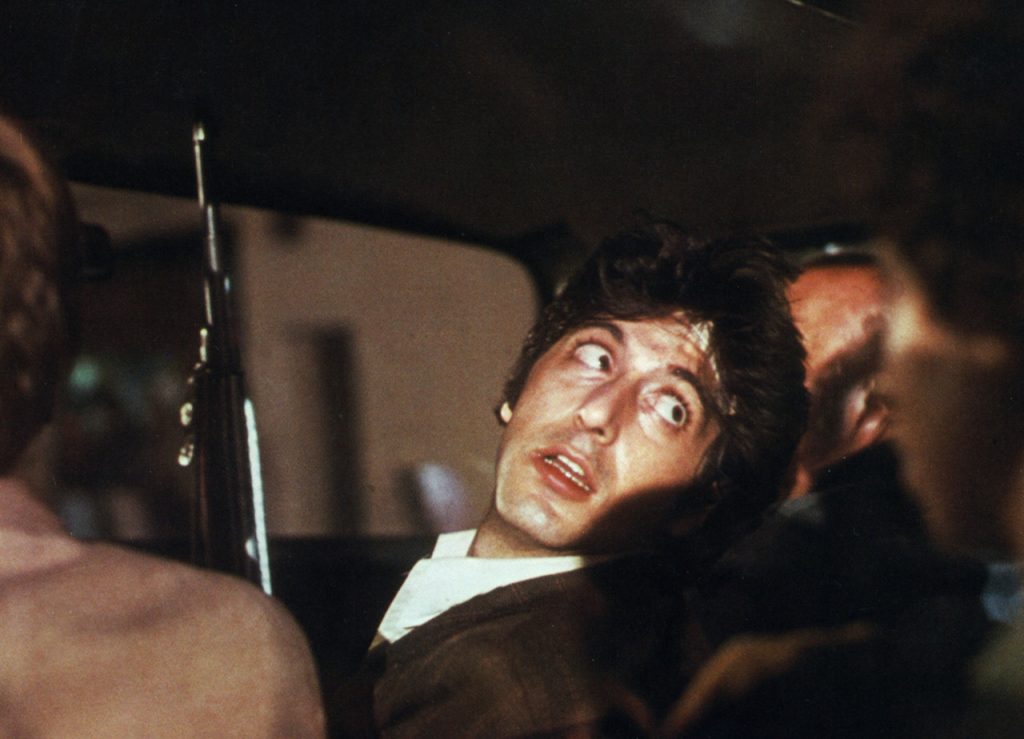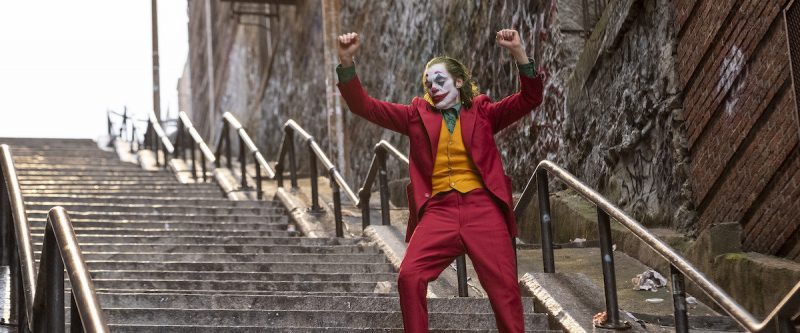There’s no denying that Todd Phillips‘ direction of Joker is largely rooted in some of Hollywood’s most renowned films. One of the best things about the film, however, is that draws from an array of different themes and genres. Whether it be psychological thriller or dark comedy, Joker successfully incorporates a whole lot of style into its two-hour dark journey, all while paying homage to a list of Hollywood classics.
Below is a list of 5 must-see movies if you enjoyed Joker!
1. The Man Who Laughs (1928)
In a recent interview with IGN, Joker director, Todd Phillips explicitly cites this as one of the films that he and co-writer Scott Silver drew from, and he claims it was a coincidence that it happens to be an original inspiration for the Joker character.
“I think you have to start with ‘The Man Who Laughs,’ which is a silent film that really was a huge inspiration for us and oddly was a huge inspiration for the original creators of Joker, which we didn’t even know, believe it or not, as silly as that sounds. At the time we were like, let’s look at that.”
Todd Phillips, 2019
The Man Who Laughs is an adaptation of Victor Hugo’s 1869 novel and is unquestionably a direct inspiration for the creation of the Joker for the comics in 1940. Regarded as a romantic melodrama, The Man Who Laughs is known for the character, Gwynplaine: a carnival character with a disfigured, freak-like grin inflicted by a surgeon named Dr. Hardquannone.
Roger Ebert stated, “The Man Who Laughs is a melodrama, at times even a swashbuckler, but so steeped in Expressionist gloom that it plays like a horror film.”
Similar to Arthur Fleck in Joker, Gwynplaine is a poor, clown-like professional who has grown up to endure a large degree of hardship. Unlike Joker, however, the film ends tragically with Gwynplaine drowning himself following the death of Dea, the girl he fell in love with at an early age.
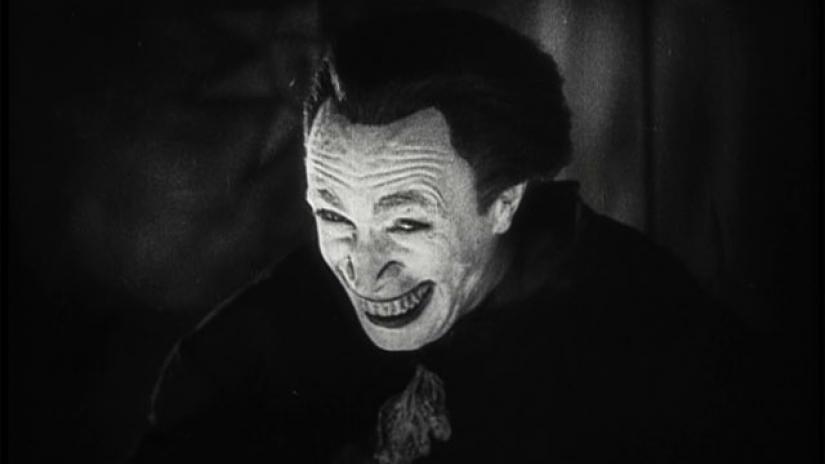
2. The King of Comedy (1982)
Phillip‘s concept for Joker seems to stem largely from The King of Comedy – a Martin Scorcese classic that tells the story of Rupert Pupkin, a stand-up comic wannabe who aspires to perform on Jerry Langford’s Tonight Show program.
Much like Arthur Fleck, Pupkin fantasises about being admired his favourite talk show host – a fantasy which leads to Pupkin kidnapping Langford and demanding airtime for ransom.
Similar to Arthur Fleck, Pupkin is also an atrocious stand-up comedian and lacks the basic understanding of how jokes work. One could attribute this to their inability to empathise with their audience and the general understanding of human emotion – a trait that is absent amongst sociopathic characters like Fleck and Pupkin.
To make the connection between “Joker” and “King of Comedy” clear, Phillips cast De Niro in the Jerry Lewis-style role of Murray Franklin.
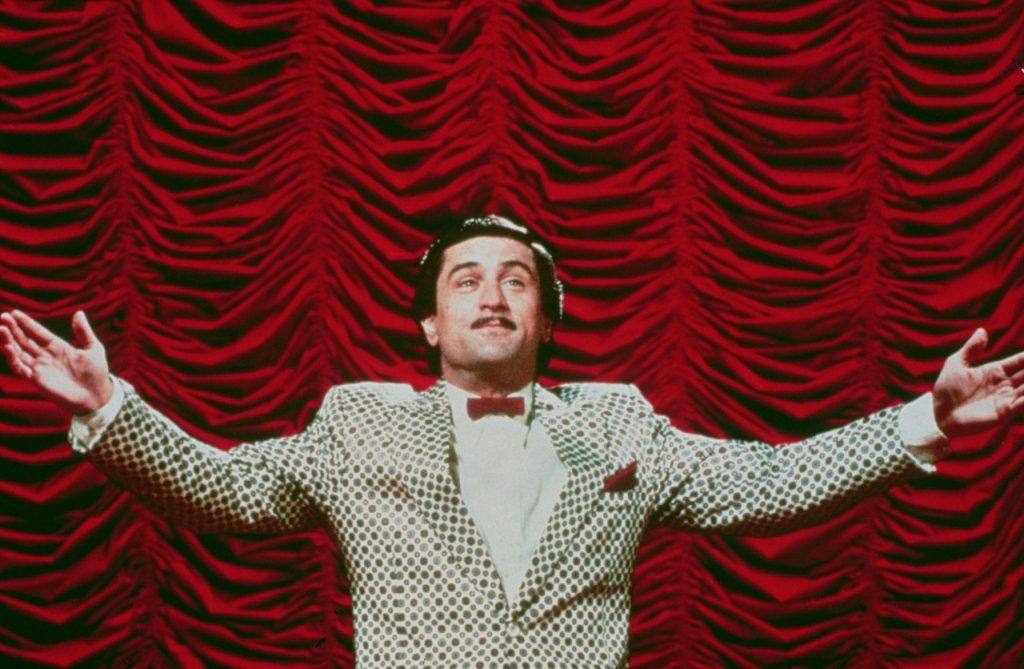
3. Taxi Driver (1976)
Another Martin Scorcese classic that inspired Joker is the 1976 crime-thriller, Taxi Driver. Ever since the inception of Joker, Todd Phillips has made it clear that Martin Scorcese was a major influence behind Joker, and if you’ve seen the film, you’ll understand how.
Much like Joker, Taxi Driver is largely set in the lower-class suburbs of a metropolis environment, with littered streets and dim street lighting serving as an added backdrop.
Like Arthur Fleck, the protagonist of Taxi Driver also resides in a dilapidated apartment overlooking New York city.
Another direct similarity is their personality. Both men are downtrodden souls who have become consumed by their own desires. The first is their desire to assassinate a popular media figure, and the second is their desire to date beautiful, unattainable woman.
The “Taxi Driver” influence in “Joker” is so heavy that Phillips even has Zazie Beetz‘s character imitate Travis Bickle’s gun-to-the-head shooting motion with her hand.
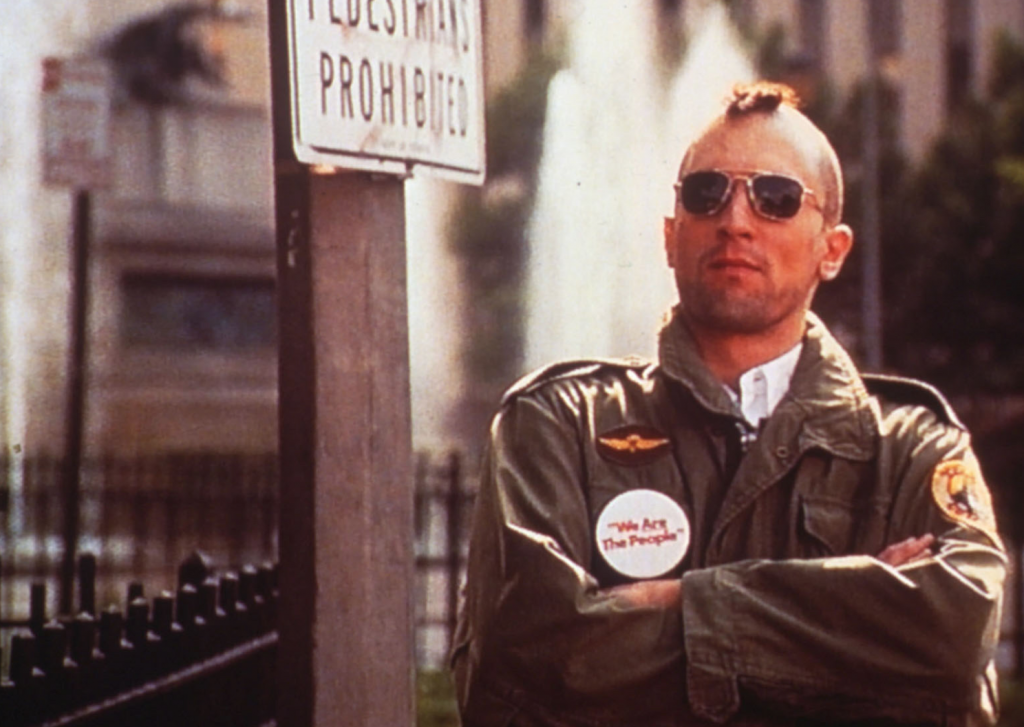
4. You Were Never Really Here (2017)
Much like Phoenix‘s character in Joker, You Were Never Really Here depicts a disturbed individual by the name of Joe who goes to extremely violent lengths to achieve his goals.
In the film, Phoenix plays a jaded war veteran who after a series of traumatic events decides to pursue a life of morally-justified violence, working as an antihero vigilante rescuing trafficked girls.
More accurately, You Were Never Really Here displays an almost-warped version of Arthur Fleck, where violence and brutal acts are intended for good instead of evil.
Similar to Arthur Fleck, Joe comes from a background of abuse.
From the beginning of the film, we witness Joe hiding in his bedroom wardrobe while his father abuses his mother. But despite the deeply-rooted dark atmosphere that exists throughout the film’s entirety, there are still moments of sweetness. Much like Joker, these moments are mainly short but sweet exhibits of Joe and his mother engaging in mother-and-son activities.
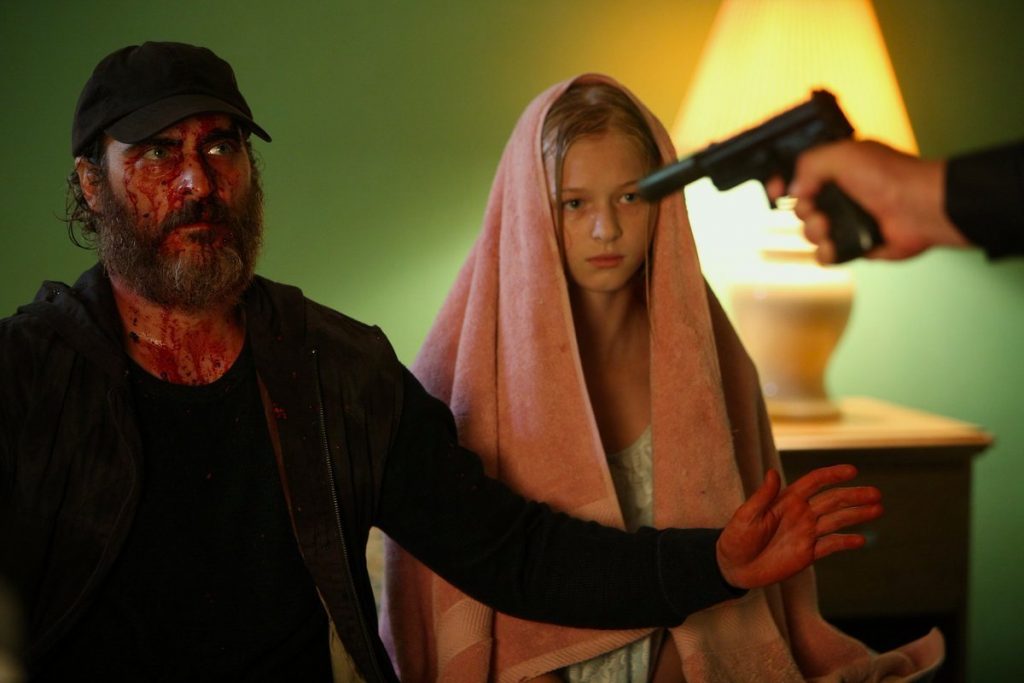
5. Dog Day Afternoon (1975)
The admiration both Phillips and Silver had for gritty crime-thrillers that came out of 1970’s Hollywood is more than obvious. When they conceived the idea for Joker, they were immediately drawn to this era of Hollywood – an era which is largely recognised for its list of grimy, crime-ridden films that glamorise lower-class anti-heroes.
One particular touchstone of 1970s cinema that Phillips used to pitch Joker to Warner Bros was Sidney Lumet’s, Dog Day Afternoon.
Starring Al Pacino, the film revolves around a man who decides to rob a bank only to become a famed celebrity when the hostage situation gains national attention.
Similar to Joker, the Oscar-winning script does a tremendous job depicting a character that is pinched by his social upbringing. Regarded as one of the best movies of 1970s, Dog Day Afternoon is filled with violence, grit and social commentary – a staple to producing a film in the same vein as Dog Day Afternoon.
